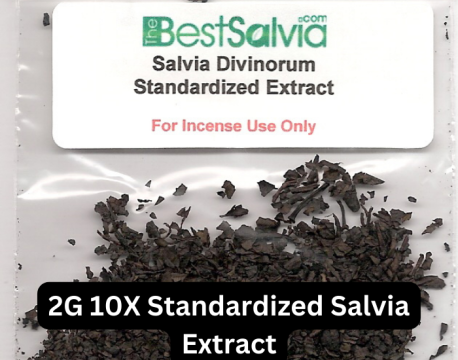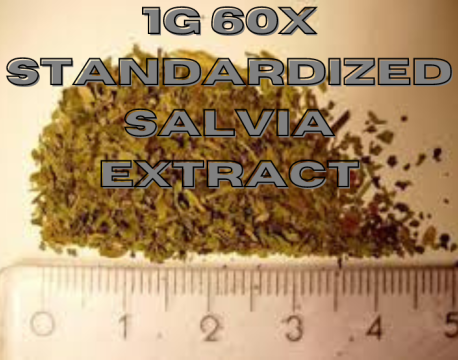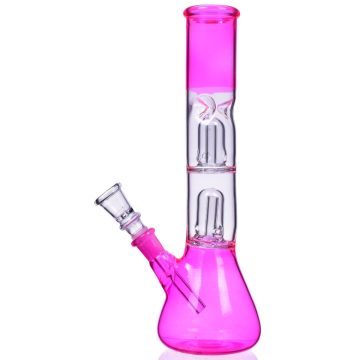Salvia is a unique and powerful herb used for centuries for its medicinal and spiritual properties. For a long time, growing salvia Divinorum was believed to be propagated by cuttings and not by the seeds, but it is more than that. It does not produce viable seeds, but this was later proven to be a bluff.
The plant can produce seeds, but it is tough to grow them into salvia plants because they have low survival and low germination rate. Since the seeds are very fragile, keeping them viable for the longest time is essential.
Growing Salvia Technique
Professional salvia growing is a relatively new way of cultivating this plant, which allows growers to produce large amounts of high-quality salvia with minimal effort. This technique involves using specialized soil mixes, light cycles, and other techniques that help maximize the plant’s growth.
With this method, growers can produce high-grade salvia in a fraction of the time and cost compared to traditional methods. In addition, this technique also provides an opportunity for growers to experiment with different varieties of salvia, allowing them to create unique products that can be sold or gifted to their friends, family members, and others.
Growing Salvia is easy to learn and requires no specialized knowledge regarding plants or gardening. This technique can be used with all types of soil types, so long as there are ample nutrients in the soil that the specific variety needs.
Growing Procedure
To do this, the seeds must be kept in a sealed container. This container must always be kept dry. Also, refrigerating the seeds of this plant will significantly extend the viability of the seeds. When planting the seeds, it should be remembered that they should be buried two to three millimeters deep in a high-quality potting mix. It is approximately 0.08 to 0.1 inch.
Watering the seeds is very important since you must take extra caution to avoid dislodging them. Usually, the tiny seeds are close to the surface of the soil, so watering should be done from the bottom.
Perfect Conditions for Salvia Growing
The light cycle needed for salvia varies depending on which plant they are using, but most varieties require 16 hours of light every day to thrive.
Most salvia varieties require one to three weeks of growth before they are ready to harvest. To effectively grow salvia, it is necessary to provide the plant with plenty of nutrients so that it can put all those leaves into flower and make a potent extract.
Some plants will be more finicky than others and need special attention to thrive when grown indoors. For example, some plants need a damp spot to root. Others may need to be put in a high-intensity light. There are also many variables associated with the type of cultivation methods that you will use.
The best way to grow salvia is by using hydroponics because they require less space and are easy on the plant’s health, but it is not always possible or convenient for everyone. However, if you have the right resources, growing salvia indoors can be very rewarding and fun! There is an excellent variety of salvia varieties and colors, which can make them a very attractive plant.
Growing Salvia and Caring for the Plant
As for the surface of the soil, you should ensure that it is kept moist but not to the point that it becomes soggy with water. The first few weeks will require plenty of watering, but eventually, you may only need to water at least twice a week. You will know if the seeds are viable when germinating in about two to four weeks. In general, delicate seedlings grow slowly at first, so it is necessary to take care of them meticulously.
As the plants grow, they will become less fragile and more robust. The seeds can be grown in your flower garden or indoors as long as you patiently take care of your plants. When planting your seeds, make sure that you keep them ten to twenty inches apart from one another so that each plant will have a place to bloom fully. It is advisable to grow and propagate the plants to produce new strains. That is mainly because most saliva plants are propagated from cuttings and thus end up clones of one another.
Harvesting Salvia Divinorum
You can harvest the leaves when it begins to grow by reaching in and plucking them from the stem. A popular method of harvesting salvia is to cut down the plant and then use dandelion leaves or other similar types of plants as mulch to keep it alive.
The plant is mainly harvested for its leaves and may be dried by hanging in the sun to dry. Individual leaves can also be boiled to extract the active constituents. Salvia has been studied on a small scale as a potential treatment for anxiety and depression, with initial results promising but inconclusive.
The Plant’s Uses
The plant could be used as an intervention in psychotherapy if further research suggests that it is safe and effective at treating mood disorders. These include depression, anxiety, or bipolar disorder. However, most evidence does not show any benefit of using salvia for these conditions. Additionally, some people use salvia to help with smoking cessation. However, it is not yet widely accepted as a treatment for any medical condition. More research is needed to prove the effectiveness of the plant in managing various medical conditions. Therefore, the plant’s sole benefit remains recreational purposes as of now.
10″ DOUBLE PERC BEAKER BONG
Take Away
When you plant the seeds, ensure that you add fertilizer to your soil. As time passes, you may only need fertilizer once a week. Your fertilizer once a week. Your fertilizer can either be organic or chemical. You can also use mulches for your plants, most of the time.
Additionally, you do not have to worry much about pests destroying your plants. These plants are usually pest-free. If you ever encounter a problem, you can use a fungicide to treat your plants. Weeds should also be removed so plants sprouting from the seeds will grow properly.



